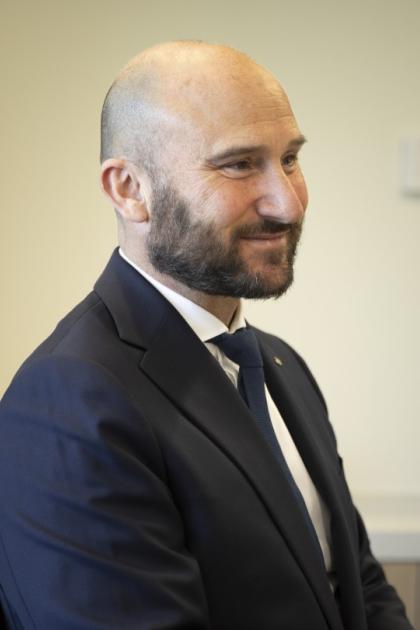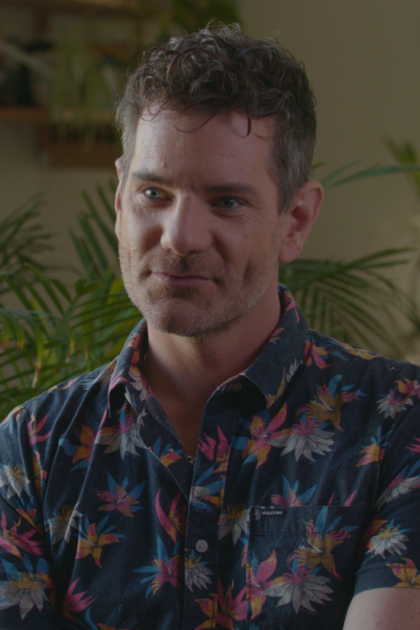Champions of veteran employment
Three ambassadors for veteran employment explain why hiring ex-service people is a win for both sides.

Veterans bring a range of skills that can benefit any employer or industry, such as leadership, teamwork, agility and the ability to work under pressure. The ADF is an incredible training ground, but when they leave the military, some people experience challenges promoting the skills they gained when applying for civilian jobs.
Appearing on ABC News Breakfast as part of a national veteran employment campaign, Repatriation Commissioner and retired Brigadier Kahlil Fegan DSC AM, highlighted the valuable skills veterans bring to the workforce and how employers can support them and benefit from their skillsets and experience.
‘Each of our veterans that are serving have particular skillsets that they become absolute experts in… there’s also these values that are inculcated in our defence men and women,’ Kahlil said. ‘Respect, having integrity, having courage, seeking excellence in everything you do and loyalty… those values actually mean something.
‘When they leave the military, they don’t hand those back into the Q Store on the way out, they come with them and they’re the particular attributes or values that they can then apply to a new environment if they get the chance.’
ABC News weatherman, Nate Byrne, was in the Navy for 12 years before applying, with some trepidation, for a job with the national television network. ‘I hadn’t written a CV in over a decade,’ Nate told Channel 9’s Today program, ‘let alone applied for a job. I never thought I was going to leave defence. Meteorology and oceanography in the Navy – I absolutely loved it. But then I took a year off to go and do science communication, outreach, and then I found a new love.

‘In the military, the jobs require very specific skills, for which you are trained. I didn’t realise that in the civilian world, there’s a lot more flexibility – you can define jobs and your skills differently.’
Nate has some emphatic advice for employers in support of his fellow veterans:
‘When you are hiring a veteran, you’re not just getting a person to do a job, you’re getting a per - son that comes with a complete life experience, almost regardless of how long they spent in Defence. So you get people with skills they don’t even know they have – the ability to put up with a heck of a lot. You’re kind of getting in somebody who’s just possibly the best version of what you want, ready to go.
‘So if you’re hiring somebody who’s spent 6 years in the ADF, you are actually hiring the equivalent of somebody on the outside who has probably worked for 10 or 15 years in another job. Because they’d at least worked 3, maybe 4 jobs in that time and been put in roles that need them to be more mature, more experienced, also more sensitive than you might otherwise have had in an equivalent time in the civilian world. So what you’re actually getting is bang for your buck.’
Former Army officer Tom Nhan Tri Nguyen is the only child of migrants who were fled war-torn Vietnam. Now a freelance strategic management consultant, Tom earned a Master of Business Administration and worked for companies such as McKinsey, Telstra and Salesforce. But he credits the Army for the foundational skillset that gives him the edge in answering the ‘big, often nebulous, strategic questions for which there is no set formula.’

‘I think there’s a number of qualities that I’ve taken from the Army that have really put me in good stead in civilian life,’ Tom said. ‘The first is resilience to stress – the sort of training that you get in the Army really pushes you to the limit in terms of physical mental and social stress. The second is to do with people leadership. I think people leadership training exists in the corporate world – but it’s nowhere near as intentional as it was in the Army – and that’s really allowed me to lead and energise teams in business life in a differentiated way.
‘Finally, I’d say just the sense of service that that my time with the Army has given me is really something that I’ve taken away, and it’s stayed with me. I’ve remained, for example, in Surf Life Saving since leaving the Army, and that’s effectively become my Army Reserve surrogate.’
The veteran employment campaign ran from April 2024 and included newspaper, magazine, radio and television advertising. Its online videos garnered almost 180 million views – 3 times the number expected. Even though the campaign has come to a close, DVA continues to spruik the great qualities veterans bring to the civilian workforce through the Veteran Employment Program. Organisations can get involved by joining the Veteran Employment Commitment, which recognises them for their workplace policies and practices that support veteran employment (read more).